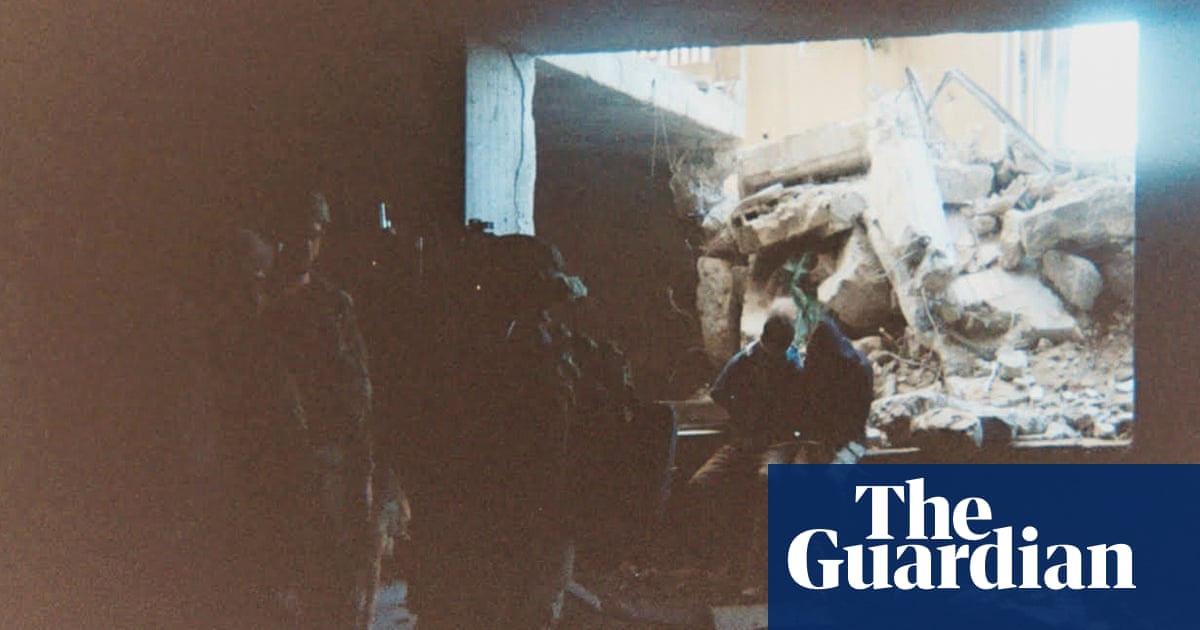Israel is investigating “several cases” involving soldiers who have forced Palestinians to act as human shields in Gaza, sending them into buildings and tunnels to check for bombs and gunmen.
“The use of Palestinians as human shields, or otherwise coercing them to participate in military operations, is strictly prohibited in IDF [Israel Defense Forces] orders,” the Israeli army said in a statement.
“Allegations of conduct that does not comply with these directives and procedures are examined. In several cases, investigations by MPCID [Israeli military police criminal division] were opened following suspicions of involving Palestinians in military missions.”
Earlier on Saturday, the Associated Press reported that several Palestinians and Israeli soldiers had said troops were systematically forcing Palestinians to act as human shields inGaza. They said the practice had “become ubiquitous during 19 months of war”, AP reported.
Seven Palestinians described being used as shields in Gaza and the occupied West Bank, and two members of Israel‘s military said they had engaged in the practice, which is prohibited by international law.
Rights groups expressed alarm, saying it had become standard procedure and used increasingly in the war.
“These are not isolated accounts; they point to a systemic failure and a horrifying moral collapse,” said Nadav Weiman, the executive director of Breaking the Silence, a whistleblower group of former Israeli soldiers who have collected testimonies about the practice from within the military. “Israel rightly condemns Hamas for using civilians as human shields, but our own soldiers describe doing the very same,” Weiman told AP.
One alleged victim, Abu Hamadan, said he was detained in August after being separated from his family, and soldiers told him he had help with a “special mission”. For 17 days he was forced to help search houses and inspect every hole in the ground for tunnels, he said.
Soldiers stood behind him and, once it was clear, entered the buildings to damage or destroy them, he said.
The two Israeli soldiers who spoke to the AP – and a third who provided testimony to Breaking the Silence – said commanders were aware of the use of human shields and tolerated it, with some giving orders to do so. Some said it was referred to as the “mosquito protocol” and that Palestinians were also referred to as “wasps” and other dehumanising terms.
The soldiers, who said they were no longer serving in Gaza, claimed the practice sped up operations, saved ammunition and spared combat dogs from injury or death.
In October,the Guardian collected testimoniesfrom former Palestinian detainees which were largely consistent with the reporting by AP. The IDF said the investigations were ongoing but provided no more details.
The forcible use of Palestinian detainees to enter houses and tunnels in Gaza first became public in footage broadcast byAl Jazeera televisionin June and July 2024. An investigation bythe Israeli newspaper Haaretzin August gathered testimony from Israeli soldiers who said the Palestinians used as shields were known as “shawish”, a word of Turkish origin meaning “sergeant”. The soldiers suggested it was an institutionalised tactic approved by senior officers.
In 2002, Israel’s high court issued an injunction prohibiting the IDF from using what was known as the “neighbour procedure”, detaining a Palestinian in an area of unrest and ordering the detainee to knock on the doors of their neighbours and oversee the clearance of their houses.
The use of human shields continued, however. In 2010, two IDF staff sergeants were demoted for forcing a nine-year-old Palestinian boy to open a number of bags suspected of containing explosives.
The Associated Press contributed to this report
